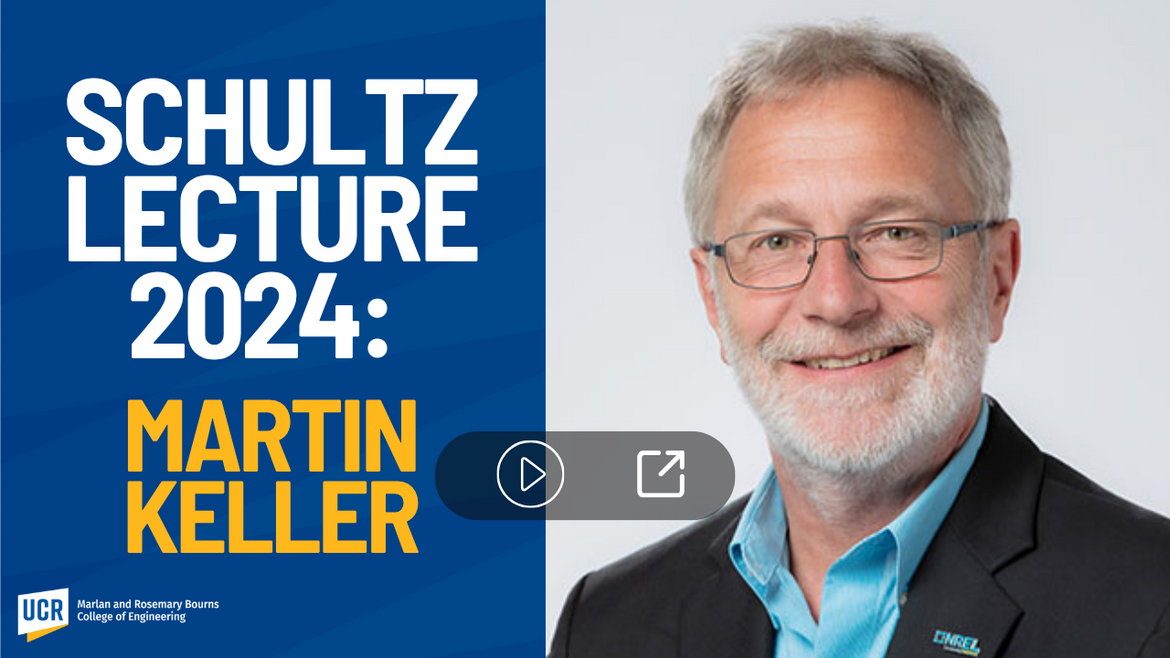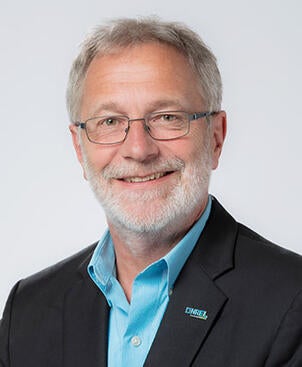2024 Speaker: Martin Keller
NREL: Building a Clean Energy Future for the World
Martin Keller, Director, National Renewable Energy Laboratory
Abstract:
The U.S. Department of Energy’s National Renewable Energy Laboratory conducts advanced scientific research that is transforming energy, a necessary transition given the triple planetary crisis and the megatrends shaping the world today and in the future.
Research at NREL falls under four areas—renewable energy, sustainable transportation and fuels, buildings and industry, and energy systems integration—all conducted in pursuit of three critical objectives:
- Integrated Energy Pathways Modernizing our grid to support renewable energy integration, incorporating storage and advanced controls, and expanding transportation electrification while maintaining grid reliability and security.
- Electrons to Molecules Exploring the use of affordable, renewable electricity to convert low-energy molecules—such as water and carbon dioxide—to generate cleaner, higher-value, and higher-energy chemicals, fuels, and materials.
- Circular Economy for Energy Materials Reduce waste and preserves resources by designing materials and products with reuse, recycling, and upcycling in mind from the start.
NREL will accelerate the global transition to net zero, resilient, and inclusive energy systems through strong partnerships with industry, academia, government, and communities of all sizes.
Biography of Martin Keller
Martin Keller has served as director of NREL and president of the Alliance for Sustainable Energy—the company that operates NREL for the U.S. Department of Energy—since 2015. Under his leadership, the laboratory’s active partnerships with industry, universities, foundations, and governments now number more than 1,000, compared to 696 in 2015, generating more than $1 billion in research and development.
NREL again set a record for new partnerships in FY23, with $143 million; 30 agreements were for $1 million or more. The laboratory’s business volume has grown from $382.7 million in 2017 to $783.5 million in 2022. To keep up with this growth, the number of regular full-time employees at NREL has increased by 82% over Keller’s tenure; overall, staffing has more than doubled to over 3,600.
Keller is a visionary leader committed to people, teams, and partnerships. He innovatively and pragmatically applies private sector best practices at NREL to achieve game-changing scientific outcomes. Working collaboratively with his leadership team, Keller developed an NREL strategy focused on three key initiatives: integrated energy pathways, circular economy, and electrons to molecules. This strategy drives NREL's advanced scientific research, programs, projects, and partnerships.
From 2006 to 2015, Keller led energy, biological, and environmental research programs at Oak Ridge National Laboratory. His efforts culminated in his promotion to serve as the associate laboratory director for the Energy and Environmental Sciences Directorate during his last six years there.
Keller received his doctorate in microbiology from the University of Regensburg, Germany.

